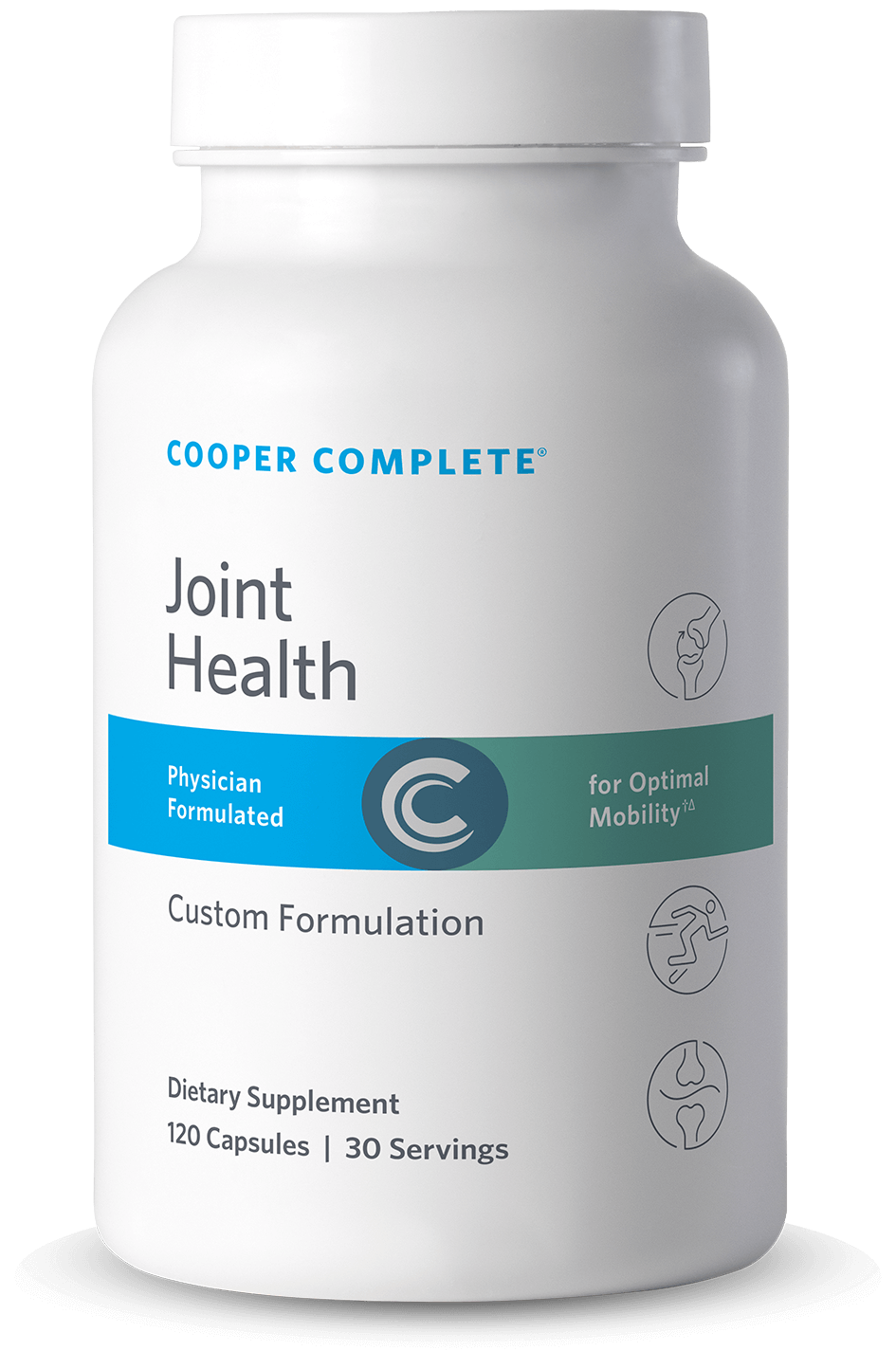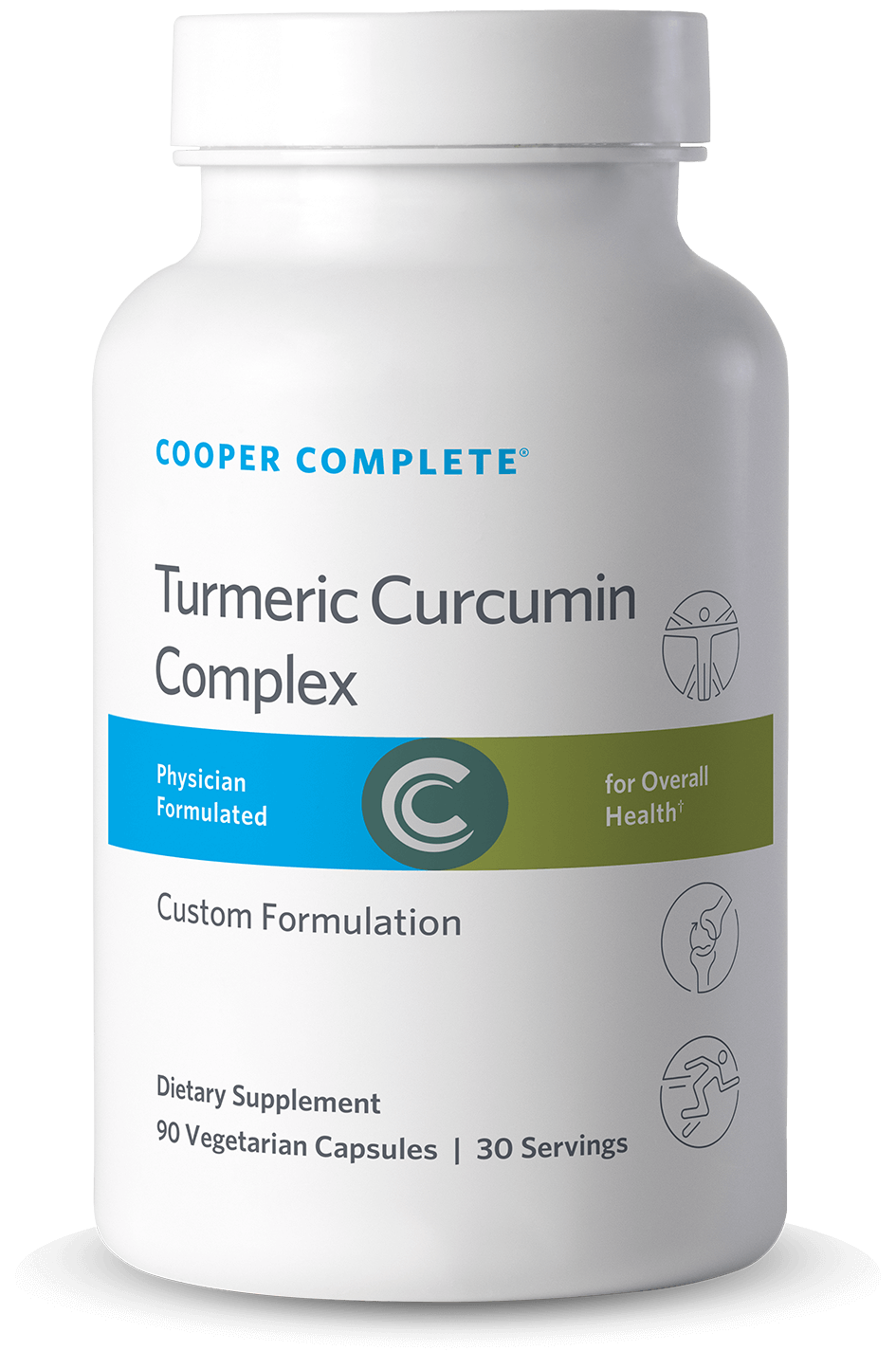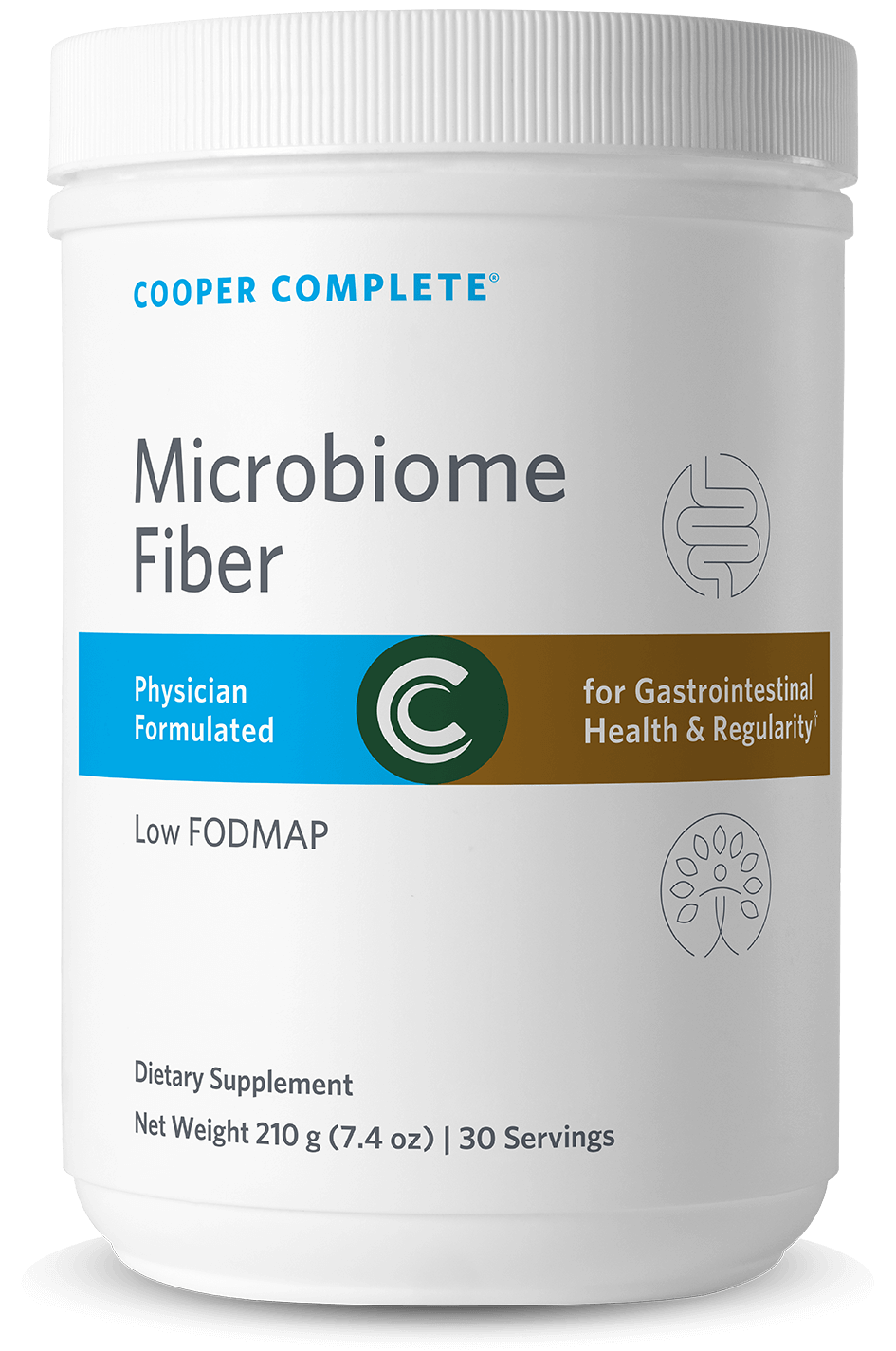Supplements To Consider For Arthritis

Arthritis pain is one of the most common reasons people limit physical activity and is a leading cause of work disability with 24% of adults in the United States, or 58.5 million people, suffering from arthritis. Arthritis can be described as the swelling and tenderness of one or more joints, ranging from mild to severe, and the main symptoms can include:
- Swelling
- Pain
- Stiffness
- Decreased range of motion
The two most common forms of arthritis are osteoarthritis and rheumatoid arthritis. Osteoarthritis causes cartilage to break down over time, while rheumatoid arthritis is a form of autoimmune inflammation where the immune system attacks the joints and joint linings.
Most often detected through an X-ray, arthritis can lead to permanent joint damage, which can manifest itself in visible changes to your body, such as knob-like finger joints. Some types of arthritis can also affect other organs, including the heart, eyes, lungs and kidneys. Yet, despite the length of time you have battled the debilitating effects of arthritis, balancing your intake of vitamin sources through diet and supplementation can help manage symptoms.

Joint Health Supplement
Custom Formulated Nutritional Supplement with Glucosamine Sulfate (2KCI), Chondroitin Sulfate, and Bromelain.
$39.98 Add to cartGlucosamine and Chondroitin for Joint Pain Relief†
Glucosamine and chondroitin are natural compounds found in cartilage throughout the body and are often used to treat inflammation. Your body naturally produces glucosamine and chondroitin to support healthy connective tissues and lubricate fluids. However, aging and injury can result in a deficiency. While studies have yielded mixed results, some found glucosamine and chondroitin provide pain relief and slow joint deterioration of those with arthritis or arthritic symptoms.
Cooper Complete Joint Health is formulated with a custom blend of glucosamine and chondroitin to help reduce pain associated with arthritis and slow the deterioration of cartilage.
Omega-3 Fatty Acids for Inflammation
Omega-3 fatty acids are most commonly known for their heart health benefits. But, this nutrient can also aid in reducing inflammation for those with arthritis. Omega-3 cannot be manufactured by the body, so the American Heart Association recommends consuming at least two servings of fatty fish—such as salmon, mackerel or tuna—each week.
Research has found omega-3 fatty acids may be beneficial in reducing inflammation throughout the body—especially for those with rheumatoid arthritis. Because the symptoms of rheumatoid arthritis are primarily driven by inflammation, the anti-inflammatory benefits of long-chain omega-3 fatty acids—eicosapentaenoic (EPA) and docosahexaenoic (DHA)—can help provide relief.
Cooper Complete Advanced Omega-3 supplement contains 720 mg EPA and 480 mg DHA to help reduce inflammatory conditions associated with arthritis, while Cooper Complete Advanced Omega-3 Liquid Supplement contains 1300 mg EPA and 850 mg DHA plus 175 mg DPA per teaspoon (5 mL) serving.
While glucosamine, chondroitin and omega-3 fatty acids are common dietary supplements suggested for those with joint pain or arthritis, research on less common supplements for arthritis has begun to emerge.

Turmeric Curcumin Supplement
Contains 1000 mg of turmeric extract, which is standardized to contain 95% curcuminoids, and 10 mg of black pepper in 3 vegetarian capsules. Physician formulated to support a healthy inflammatory response.
$35.98 Add to cartCurcuminoid for Joint Stiffness and Muscle Soreness†
When thinking of turmeric, you may think of the yellow-hued spice used in cooking. But turmeric—and its active compound curcumin—also acts as a powerful anti-inflammatory agent, blocking the protein complex NF-κB, which promotes inflammation. Studies show curcumin can be effective in treating osteoarthritis by controlling inflammation levels and reducing joint swelling and stiffness.
It is important to note that curcumin can be challenging for the body to absorb. So, it is best to take the supplement at mealtime with a source of fat. Additionally, black pepper aids in increasing curcumin’s bioavailability, which promotes absorption. Cooper Complete Turmeric Curcumin Complex features 10 mg of piperine, a black pepper extract, in each daily serving.
Ashwagandha for Symptom and Stress Relief
An evergreen shrub containing bioactive compounds, ashwagandha—also known as Indian Ginseng—ashwagandha possesses analgesic and anti-inflammatory effects for individuals suffering from joint pain. Studies are also finding ashwagandha can help relieve stress and anxiety, improve sleep quality and may even help fight certain types of cancer.†
In a 12-week, double-blind study conducted in India, two groups of adults with joint pain and discomfort were given daily doses of 125 and 250 mg ashwagandha from root extracts of Withania somnifera. Both groups reported significant reductions in pain, stiffness and disability, with the most significant results from the group taking 250 mg daily after just the first four weeks. All treatments were well tolerated and free of significant GI disturbances.
Collagen Supplementation Promotes Natural Collagen Production
Collagen is a protein found in the body that supports connective tissue structure and self-repair for cartilage, tendons, fascia, bones and ligaments. Age, lifestyle, genetics, inflammation, biomechanical instability and prior injuries can lead to a breakdown in our body’s collagen and slow the synthesis of healthy, natural collagen.
A meta-analysis of multiple studies showed collagen supplementation helps improve symptoms of osteoarthritis as measured by decreases in the WOMAC index—a measure of pain, stiffness and physical function—and VAS score—a measurement of pain intensity. Cooper Complete Collagen Complex contains three clinically studied and patented Type I and Type II collagen peptides to help promote collagen production, joint health and integrity, bone health and skin elasticity.
Probiotics Reduce Gut Inflammation
Your gut contains a whole biome of live microorganisms—or bacteria—to aid digestion and destroy disease-causing cells. In addition to supporting gut microflora, probiotics have other health benefits and have even been found to help reduce inflammation in individuals with arthritis. Research shows those with arthritis often experience inflammation in the intestinal tract, which can cause intestinal permeability or leaky gut. A healthy diet along with a probiotic supplement helps keep the intestinal barrier strong and the immune system working properly, reducing inflammation of the gut.
Consider a probiotic such as Cooper Complete Advanced Daily Probiotic, which contains four strains and 35 billion CFU probiotics and prebiotics to support gut health.
Potassium for Pain Relief
Potassium is used throughout the body to aid in the proper functioning of the nervous and skeletal systems, heart and metabolism, as well as maintain normal blood pressure. A study of 172 adult patients with rheumatoid arthritis was conducted in India. Patients in two groups were instructed to consume a vegetarian diet which provided at least 3200 mg of elemental potassium. (The RDA in India is 3225 mg potassium for women and 3750 mg for men.) The first group also received a potassium food supplement that was expected to provide 1.7-2 grams of elemental potassium. Those who were supplemented with potassium found consuming more than 5 grams (5000 mg) daily had a significant association with lower pain.
Potassium can easily be consumed in beverages, including coffee, tea, milk (both dairy and soymilk) and orange juice, as well as food sources such as bananas, dried fruits (particularly apricots and prunes), potatoes, lentils and beans. Supplementation can help individuals who struggle to consume enough potassium in their diets. Cooper Complete Potassium Chelate contains 99 mg of potassium to help protect bone, brain, heart, kidney and muscular health, while Cooper Complete Original Multivitamins have 400 mg of potassium per serving.
Quercetin for Joint Stiffness and Pain
Quercetin is a plant compound, classified as a flavonoid, found in fruits, vegetables and herbs and is best absorbed when paired with dietary fat. Most nutritious diets provide up to 13 mg of quercetin daily, which aids in immune and allergy support, as well as exercise recovery. New research finds quercetin may also help reduce the pain associated with arthritis.
In a study of women with rheumatoid arthritis, the effects of quercetin supplementation on inflammation and disease severity were evaluated. Supplementation with quercetin for eight weeks significantly reduced early morning stiffness, morning pain and after-activity pain in individuals with rheumatoid arthritis. Quercefit® quercetin phytosome—the most readily absorbable form of quercetin and the form contained in Cooper Complete Quercetin Complex—may be a good option for those with pain associated with rheumatoid arthritis.
Vitamin D and Magnesium for Stronger Bones
Vitamin D deficiency can cause depression, low immunity and fatigue and can also lead to the softening of bones. Weak, soft bones increase the likelihood of developing arthritis. So, it is crucial to get adequate levels of vitamin D through diet, sunlight exposure and proper supplementation. Vitamin D helps:
- Maintain calcium levels in the bloodstream
- Regulate inflammation
- Balance phosphorus levels, which keep bones and teeth hard
The research on vitamin D and arthritis found that starting supplementation with low blood levels of vitamin D resulted in the greatest improvement in joint pain from arthritis.

Microbiome Fiber Supplement
Cooper Complete® Daily Prebiotic Microbiome Fiber supplement contains 6 grams of tasteless and gritless soluble fiber and is low FODMAP to support gastrointestinal health and regularity.†
$30.48 Add to cartMagnesium and Fiber Supplements for Symptom Relief
Magnesium plays an essential role in managing arthritis symptoms and pain by regulating inflammation and pain signaling. Additionally, taking a magnesium supplement helps:
- Strengthen bones
- Maintain nerve and muscle function
- Regulate heart rhythm and blood sugar levels
- Maintain joint cartilage
Lower magnesium intake is associated with more severe pain and less functionality in individuals with arthritis, especially those with low fiber intake.
Fiber can be found in many food sources including fruits and vegetables, nuts, seeds, beans and whole grains. But, the American Society for Nutrition states only 5% of men and 9% of women are getting the recommended daily amount of fiber. Men benefit from approximately 40 grams of fiber per day, and women benefit from 25 grams.
Those with arthritis or arthritic conditions who do not consume enough fiber may experience more severe symptoms of arthritis and less functionality. In a study of fiber intake and risk of knee osteoarthritis, those with a higher fiber intake were found to have lower degrees of symptoms. Although further research is needed to determine the effectiveness of fiber in reducing arthritic conditions and symptoms, preliminary studies show promising results.
It is recommended to first try and consume the recommended daily value of fiber through your diet. But, if you still struggle to achieve the daily amount, the Cooper Complete Microbiome Fiber supplement may help.
Multivitamin Supplements for Inflammation
Multivitamins aren’t typically suggested as supplements for arthritis. However, there is research suggesting daily supplementation with a multivitamin might be helpful. C-reactive protein (CRP) is a protein in the blood produced by the liver. High CRP levels indicate systematic inflammation, which may occur due to injury, infection or fever. Elevated levels of CRP are associated with an increased risk of cardiovascular disease and diabetes and can interfere with drugs taken to treat various types of arthritis. Lowering CRP levels reduces the spread and severity of the inflammation in individuals with rheumatoid arthritis and helps prevent their bones from deteriorating.
Researchers at The Cooper Institute® determined through a Vitamin and Supplementation Study that multivitamin supplementation with Cooper Complete® effectively reduces CRP levels. By measuring the effects of six vitamins—C, E, B6, B12, folate and beta carotene—in a 24-ingredient multivitamin/mineral formula (Cooper Complete Original Iron Free), researchers found:
- The multivitamin and mineral formulation significantly reduced CRP levels compared with participants who received a placebo.
- The prevalence of patients with a high-risk CRP level (>3.0 mg/L) reduced from 30% to 14%
- The average change in patients’ CRP levels over six months was 0.70 mg/L
- The most significant reduction in CRP levels was seen in patients who initially had elevated CRP levels
Managing Arthritic Symptoms
Taking the right supplements for your specific arthritis can help you manage your arthritic symptoms and improve your quality and quantity of life. As with any health-related issue, your physician understands your health profile best. So, it is important to talk with them before adding or removing supplements from your routine.
